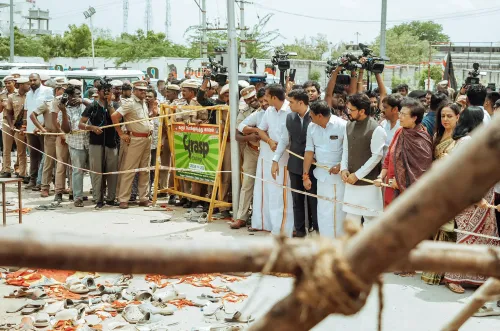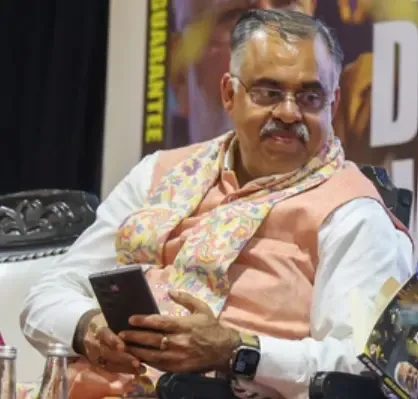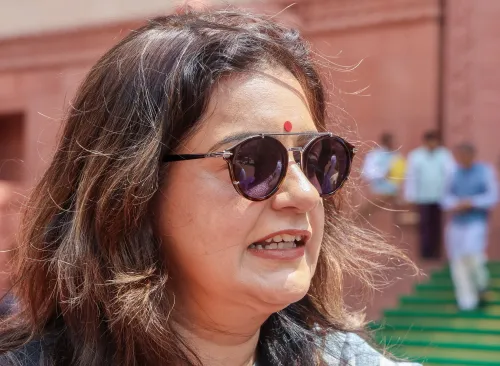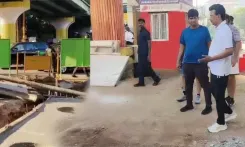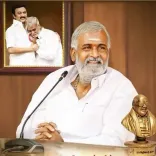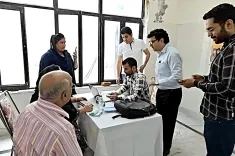Will the SC Suspend the UP's Shri Bankey Bihari Ji Temple Trust Ordinance, 2025?
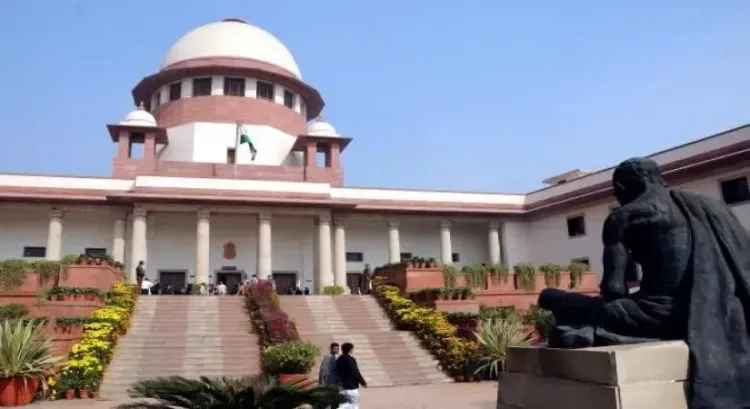
Synopsis
Key Takeaways
- Supreme Court temporarily halts UP's Ordinance.
- Committee to manage temple during legal proceedings.
- Concerns over state interference in religious affairs.
- Traditions of the Haridasi Sampraday must be respected.
- High Court to review the legality of the Ordinance.
New Delhi, Aug 8 (NationPress) The Supreme Court announced on Friday its decision to temporarily suspend the provisions of the Uttar Pradesh government's 2025 Ordinance, which effectively took control of the management of the esteemed Shri Banke Bihari Temple in Mathura-Vrindavan.
A Bench led by Justices Surya Kant and Joymalya Bagchi stated that it will transfer a collection of petitions challenging the Uttar Pradesh government's Shri Bankey Bihari Ji Temple Trust Ordinance, 2025 to the Allahabad High Court.
While the legality of the Ordinance is under review, a committee, presided over by a retired High Court judge, will oversee the temple's operations, as noted by the Justice Kant-led Bench.
It was suggested that the proposed management committee would include the District Collector, other state officials, and representatives from the Haridasi Sampraday.
The Supreme Court indicated that it will publish a comprehensive order by Saturday regarding the various petitions contesting the Uttar Pradesh government's attempt to assume control of the temple's administration, which has traditionally been managed under a private structure based on a 1939 scheme.
Additionally, the Supreme Court stated that it will retract its May 15 ruling, which permitted the state government to use temple funds for the corridor development initiative.
In a previous hearing, the Justice Kant-led Bench expressed disapproval of the “clandestine manner” in which the Uttar Pradesh government sought authorization to utilize temple funds by submitting an application within an ongoing civil case.
It emphasized that temple rituals must proceed in accordance with the traditions of the Haridasi denomination and questioned the “tearing hurry” with which the Uttar Pradesh government enacted the Shri Bankey Bihari Ji Temple Trust Ordinance, 2025.
One of the petitions argued that the recent Ordinance signifies state interference in religious affairs, compromising the independence of the current temple management committee.
It claimed there was no compelling reason for the state government to impose such an Ordinance and that the government provided insufficient justification for assuming control of the temple's administration.
The petition, lodged by advocate Sankalp Goswami, stated that the provisions of the Ordinance violate the rights of the Haridasi/Sakhi Sampraday to govern its own religious affairs and the rights of its members to practice, profess, and propagate their faith, as it seeks to modify essential religious practices, rituals, customs, and traditions, potentially displeasing the deity and jeopardizing the entire denomination's existence.
The plea contended, “Section 5 (1)(i), 5 (i), 6(8) of the Ordinance directly violates Article 26(c) and (d) as it permanently strips the religious denomination of its administrative rights and transfers them to a non-denominational secular authority. Thus, under the guise of improved management, the Ordinance has entirely usurped the administration and management from the religious denomination, creating a new body that renders the denomination redundant,”
adding that the temple is neither public property nor a state-owned trust.

